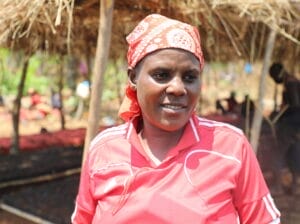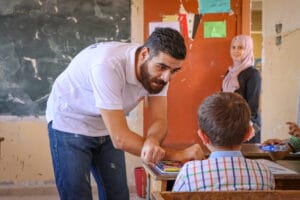
In 2011, the United Nations General Assembly declared October 11 as the International Day of the Girl Child. The day aims to highlight and address the needs and challenges girls face daily and to promote their empowerment and the fulfilment of their human rights, such as the right to education, freedom from violence, gender equality and sexual and reproductive rights.
A practice that, even today, represents gender-based violence and a barrier to achieving gender equality, is child forced marriage. This concept indicates any marriage where at least one of the parties is under 18 years of age and has not personally expressed full and free consent to the union. Although early forced marriages are widespread even among boys, they disproportionately affect women and girls: worldwide, more than 650 million women alive today were married as children and up to 10 million girls are at risk of child marriage.
Early marriage is usually used as a coping mechanism for precarious and uncertain situations, such as economic insecurity, armed conflicts, food shortages and natural disasters. In these cases, families could turn to early marriage as a means of financial relief. Indeed, the contexts affected by climate change, armed conflicts and economic crises have the highest rates of forced early marriages: in West and Central Africa, 12% of girls between the ages of 20 and 24 married before the age of 15; in East and South Africa 9%, while in South Asia 7%.
As a result of forced marriages, girls may drop out of school, become more vulnerable to gender violence, discrimination and abuse, and have fewer opportunities to participate actively in economic, political and social life. Moreover, early pregnancies increase the risks of pregnancy- and childbirth-related complications, which can have long-term health impacts, or even cause death.
Dreamless weddings
The imposition of gender roles and strict patriarchal norms, such as being forced to marry early, not only doesn’t allow girls to exercise their right to childhood, education and work, but also has a strong impact on the construction of their identity, their future and their dreams. Indeed, these experiences, affecting girls' dreams, can generate the phenomenon called "dream gap".
The dream gap indicates those cases where girls, due to gender discrimination, come to doubt their abilities and are held back from living up to their full potential. Several studies have shown that the dream gap can occur as early as 5 years, when many gender behaviors begin to be internalized, and girls can develop self-limiting beliefs, thinking that they are less capable and valuable than men. An example of this attitude is to categorize occupations as "male professions" or "female professions", as in the case of STEM subjects, considered an all-male field and therefore excluded to girls.
In this case, stereotypes determine that, globally, even if more women than men are enrolled in university (114 women per 100 men) and graduation rates are higher among women, only 35% of STEM students are women. Only in some regions, such as the Middle East and North Africa, the percentage of women graduates in STEM is higher than in high-income Western countries. According to some studies, this gap between countries is due to the fact that such an academic objective and the possibility of employment in the STEM sector are strongly perceived as a form of emancipation from rigid patriarchal norms.
We help girls to dream big
Early marriage is a critical barrier to girls’ education, while better education opportunities can significantly lower child marriage prevalence. Moreover, education is also the main tool to promote and exercise a culture of gender equality, combating stereotypes that limit the ambitions and possibilities of many girls, as well as the gender dream gap. It’s through education, in fact, that girls can imagine and dream about their future and develop their full potential. Thus, promoting quality education is one of the best ways to delay marriage.
For this reason, WeWorld promote and protect the right to education of girls around the world, especially in the most vulnerable contexts: we are part of the ChildFund Alliance network, which supports children, girls and their families to fight poverty and to develop their full potential. Moreover, together with the coalition "Global Campaign for Education”, we ask Italy a first contribution of at least € 15M (€ 3.75M per year) total for the next 4 years to Education Cannot Wait, in order to defend and promote the right to education also in contexts of emergency and protracted crises.
Education Cannot Wait (ECW) is the United Nations global fund for education in emergencies and protracted crises. In 2021, ECW has reached 3.7 million boys, girls and teenagers in 32 crisis-affected countries (48.9% of whom were girls). Achieving this funding goal means that, over the next four years, ECW will be able to support a total of 12 million girls with a safe and quality education.
Read also: WeWorld and ChildFund Alliance



